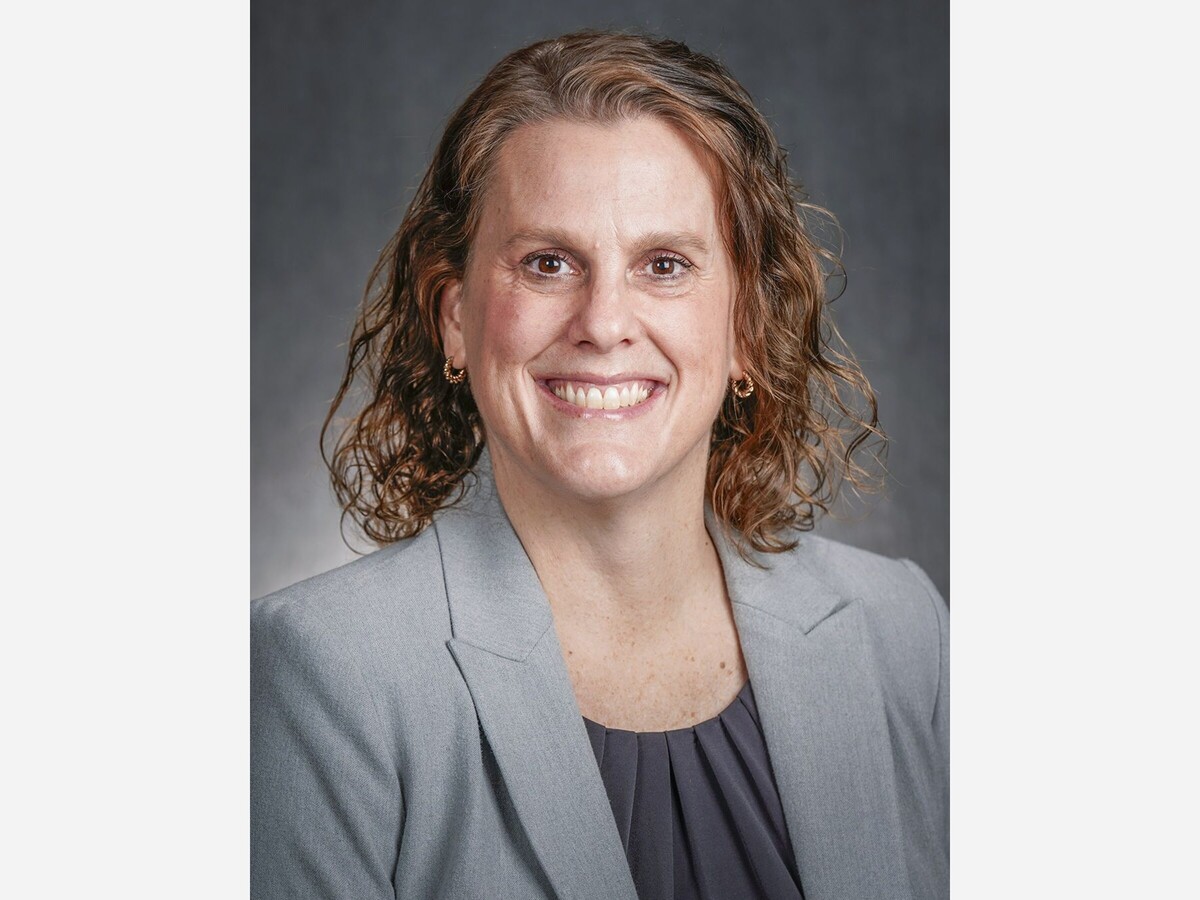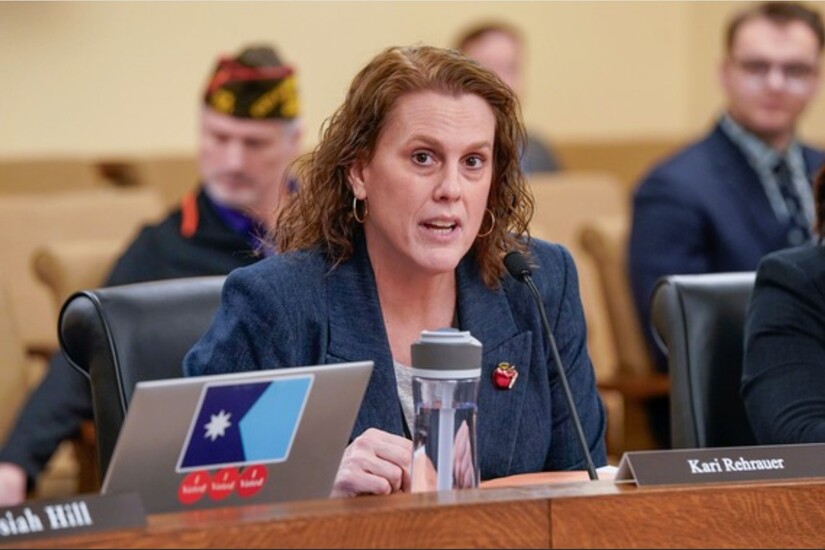Image

“We need a Minnesota Miracle 2.0.”
MINNEAPOLIS, MN — In this week’s exclusive feature from MinneapoliMedia’s “Meet Your Legislator” interview series, we spotlight one of the key voices shaping Minnesota’s education policy from the ground up: Rep. Kari Rehrauer (DFL–District 35B).
Representing Eastern Coon Rapids and Southern Andover, Rep. Rehrauer brings a rare blend of experience to the Minnesota House—as a former public school science teacher and an unwavering advocate for students, families, and equity in education. With more than a decade in the classroom, she offers a grounded, firsthand perspective on the challenges facing public schools today.
Since taking office, she has emerged as a leading voice for fully funded schools, mental health supports, and policies that center students over political soundbites. In this candid conversation, Rep. Rehrauer shares her insights on school funding gaps, the escalating culture wars in education, and her bold vision for a renewed “Minnesota Miracle 2.0”—a call for statewide reinvestment in our public education system.
Tom Akaolisa: Rep. Rehrauer, let’s start with the big picture. What do you see as the most urgent issue facing Minnesota’s public schools right now?
Rep. Kari Rehrauer: Without a doubt, it’s funding. If the per-pupil formula had simply kept pace with inflation since 2003, schools would be receiving more than $1,000 extra per student today. That shortfall has had a huge impact—especially on class sizes. When I started teaching in 1999, my average class size was about 25. By the time I left the classroom, it had grown to 35, and in some cases nearly 40. That changes everything—from how you teach to how students learn.

Tom Akaolisa: You’ve also spoken passionately about student support services. How are those affected by underfunding?
Rep. Kari Rehrauer: In really troubling ways. Many schools in my district have some of the worst counselor-to-student ratios in the nation. We’re talking one counselor for every 700 or 800 students. Behavioral issues are rising, and students are dealing with complex mental health needs. But we don’t have enough professionals to support them. That’s not because schools don’t care—it’s because they don’t have the resources.
Tom Akaolisa: Culture wars have dominated much of the national conversation about schools. How do you respond to those framing public education as a battleground?
Rep. Kari Rehrauer: Honestly, it’s frustrating. There’s a deliberate attempt to divide us and distract from the real problem: a lack of funding. It’s not about “woke ideology” or censorship—it’s about whether we’re giving our kids what they need to succeed. Everyone should care about all kids, not just their own. Public education is the cornerstone of democracy, and we’re allowing it to be undermined for political points.
Tom Akaolisa: Let’s talk about the 2023–2024 legislative session. What education wins are you most proud of?
Rep. Kari Rehrauer: We made meaningful progress. First, we finally tied the education funding formula to inflation. That’s a big step toward ending the cycle of feast and famine that schools have dealt with for decades. We also passed unemployment insurance for education support professionals—like paraprofessionals and bus drivers—so they can make ends meet during summer breaks. And we enacted universal school meals, which helps eliminate lunch debt stigma and ensures every kid is fed and ready to learn.
Tom Akaolisa: You’ve also been a strong advocate for equity in school funding. What changes are still needed?
Rep. Kari Rehrauer: We need a second “Minnesota Miracle.” The original in 1971 shifted school funding from local property taxes to the state to level the playing field. But over the past 20 years, we’ve moved away from that. Now, wealthy districts can raise a lot through local levies, while places like St. Francis or Coon Rapids fall further behind—even if they pass the same tax rates. In some cases, the difference is $6,000 more per pupil between districts. That’s unacceptable.
Tom Akaolisa: What do you propose to fix that?
Rep. Kari Rehrauer: We need comprehensive tax reform. That means closing corporate tax loopholes and making sure the wealthiest Minnesotans—those making $500,000 a year or more—contribute their fair share. That revenue could be used to equalize education funding across the state so that where a child lives doesn’t determine the quality of their education.
Tom Akaolisa: What’s your stance on vouchers or using public funds for private schools?
Rep. Kari Rehrauer: I believe families should choose the best fit for their child, but public money belongs in public schools. Private schools don’t follow the same accountability standards, don’t serve all students, and aren’t governed by elected boards. Public schools are designed to serve every child—and they’re held to that promise. Taxpayer dollars should go where there's oversight and equity.
Tom Akaolisa: Amid all the challenges, do you still feel hopeful?
Rep. Kari Rehrauer: Absolutely. I believe both Democrats and Republicans care about kids—we just need to get back to having human conversations, not ideological battles. We’re not enemies. We’re parents, neighbors, teachers. If we can refocus on what kids need and work together, I truly believe we can rebuild a system that lifts up every student.
Akaolisa: Any final thoughts for parents or voters in your district?
Rep. Rehrauer: I’d say this: don’t buy into the fearmongering. Go volunteer at your child’s school. Talk to teachers. See the good happening in classrooms. And know that we’re fighting every day to give your kids the schools they deserve—not just now, but for generations to come.
Rep. Kari Rehrauer represents Minnesota House District 35B, which includes eastern Coon Rapids and southern Andover. She serves on several key committees focused on education and is a leading advocate for equitable school funding, student support services, and universal access to high-quality public education.
Follow MinneapoliMedia’s Meet Your Legislator series for more exclusive interviews with the people shaping Minnesota policy and public life.